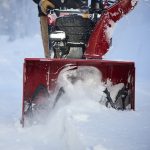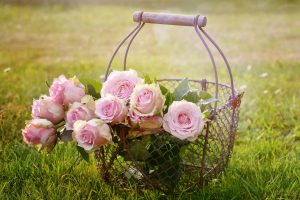There are many species of birds that remain in your region in the winter. They depend on your garden for sustenance during those cold and snowy months. They need food, water, and cover.
Providing water is not an easy task when temperatures plunge down below freezing. However, there are things you can do to ensure that plenty of water is available. You can add a heated birdbath or aerator. A heater or some way to create bubbles in the water will assist to prevent ice from forming on the birdbath.
As far as food is concerned, there are many winter plants that will provide the seeds and fruit birds love. Plants like Staghorn, Sumac, Viburnums, Virginia creeper, Serviceberry, winter berry Holly, Bayberry and more offer fruit and berries during winter. In addition, if there is space available, evergreen trees can offer seeds from their cones. Crab Apple trees can be another source of both fruit and seeds. Also ideal are shrubs that include berries and are small enough to include in a garden.
Experts who have grown winter gardens for the purpose of supplying birds with sustenance suggest that you select native plants to include in the garden. One source that can be used to help you search includes the Habitat Network and if you want to learn what winter birds eat, check into the Project FeederWatch.
People who are familiar with designing gardens that provide sustenance for birds during winter advise that you create several vertical layers of plants to attract different species of birds.
For example, the ground cover can be moss or partridgeberry. A perennial layer can include thistle, golden rod, columbine and ornamental grass. There can also be a shrub layer in which there are dogwoods, nannyberry, spicebush, witch hazel, viburnums, sumac, cotoneaster, pyracantha, mountain ash, junipers, flowering dogwood, weigela, bayberry, roses, quince, and winterberry.
Vines including grapes and Virginia creeper can attract birds, too. However, in some regions these vines could be invasive. So do some research before committing to grow them.
Trees including crabapple, pine, spruce, fir, maples, elms, and oaks can serve as canopies.
The garden buffet can be supplemented with birdseed mix. Be aware that there are differences between the many commercial seed brands concerning what they include and the birds they attract. Be cautious about commercial brands that have a lot of filler like beans, cracked corn, wheat, milo, red millet, dried rice, lentils and halved peas. Only the larger birds can eat the dry ingredients. The best mixture of birdseed usually includes sunflower seeds, corn or peanut granules.
Of course, you can make your own birdseed mixture. The Cornell Laboratory of Ornithology suggests this recipe:
· 25 lbs black oil sunflower seed
· 10 lbs. white proso millet
· 10 lbs. cracked corn.
Mix in a clean garbage can with a broom handle. Once mixed, cover the can tightly to keep out water and rodents.
The Cornell Laboratory also pointed out that birds love squash, pumpkin or melon seeds. Spread the seeds out on trays and let them air dry. Once dry, they can be put out for the birds.
Seed eater birds including siskins, sparrows, grosbeaks, redpolls and crossbills favor unsalted sunflower seeds, black oil sunflower seeds, sunflower hearts or chips, thistle/niger (Nyjer) seeds, raw crushed peanuts, millet and wild grains.
Insect feeding birds including chickadees, nuthatches and woodpeckers should have animal fat. Peanut butter mixed with melted animal fat and cornmeal or rolled oats would be ideal.
Finally, the Cornell Laboratory suggests that the birds’ diet include grit. The Lab says that birds need to eat grit to grind their food. So put out crushed eggshells, course sand, or commercial grit.









